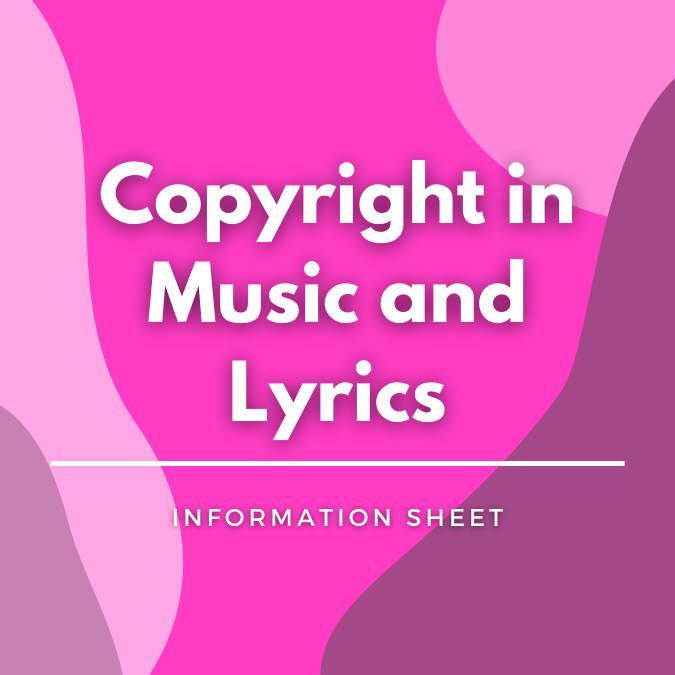Lee Collier, a musician wanting to ensure she’s not assigning copyright in her music to her employer


A question often on the tip of an artist’s tongue is ‘how can I best manage my art and my day job?’. With lack of financial return from their arts practice being a big issue for artists, they often find they need another job in order to make ends meet. If the job involves the creation of intellectual property (IP), this can sometimes blur the lines around what belongs to the employer and what belongs to the artist.
Roxanne Lorenz, a Solicitor at Arts Law, recently advised Lee Collier, an established songwriter about her IP in an employment context. Lee has developed a catalogue of music over many years and maintained copyright ownership over it.
Having recently been offered a full-time role with an aged care service organisation as a ‘Lifestyle Assistant’ which included carrying out music workshops with the residents. Lee was concerned about a clause in her employment contract which assigned her IP rights to the employer.
Given Lee’s expansive back-catalogue of music, Lee thought it would be in her interests to seek some legal advice before signing the contract. Afterall, Lee’s copyright interests in her music are the fruits of her labour from decades of work, writing and composing. Lee plans to continue to compose and write her music outside of work hours and wants to ensure she maintains her IP rights.
The Australian Copyright Act states that when an employee makes their creative work as part of their employment, their employer is the copyright owner in that IP – unless there is a signed agreement to the contrary. However, if creating the work as a contractor or a volunteer, that is, not as an employee, the contractor or volunteer generally retains copyright in the works.
Roxanne Lorenz explained to the client, that in a standard employment contract it is common to see a clause assigning (ie giving away) to an employer any IP created by the employee within the scope of their employment. As such, the contract is simply reaffirming the position of the Copyright Act, and the employer would not have any claim over Lee’s existing or future music that she creates outside the scope of her employment. Employer’s want to be able to use the IP material that their employees are paid to create as part of their role – they are not usually so concerned about what their employees create in their spare time.
In this case, it was clear that the music that Lee had written before accepting the job was not part of her role and therefore her employer would not own the IP in it. If Lee’s employer wanted to acquire copyright ownership of any work she had created prior to her employment, the employer would need her to sign an assignment of copyright for that specific IP material.
What about any music that Lee writes during her spare time, outside the scope of her employment? In evaluating whether IP has been created in the course of employment, courts look at whether the work was made as part of an employee’s role. It would be unlikely that the music Lee composes outside of work hours, in the fulfillment of her own solo music career would fall under the scope of her employment.
However, if Lee was to write songs or create new IP as part of the music workshops (i.e within the scope of her duties), this would likely be considered to fall within her employment. Therefore the copyright in the materials she creates for those music workshops would be owned by her employer.
Artists should be aware of what their position description is and what their employment contract says.
Because of the importance of her musical catalogue to her pursuits as a composer and songwriter, Lee wanted to ensure that no dispute would arise. Before agreeing to the terms of her contract, she got something in writing from her employer which clearly stated it will not retain copyright in her existing or future musical works. This gave Lee peace of mind over her copyright interests.
When creating IP material in a work context, you should also be aware of your moral rights. Moral rights recognise a creator’s ongoing connection with their work and give them the right to be correctly named and acknowledged for their work and stop it being used in a way that harms their honour or reputation. While an employer might own the copyright in an employee’s work, the moral rights always stay with the creator. That’s why often employment contracts will contain a ‘consent to infringe’ moral rights in certain circumstances. This might be reasonable for an employee to sign. For example, if an employee created a slideshow for a presentation which many different staff members might present, the employer may prefer to only have the company logo rather than crediting the individual employee. Or an employer might want to change the slideshow to another format or add things to it, which would otherwise constitute an infringement of the moral ‘right of integrity’.
Lee was grateful for Arts Law’s assistance and the guidance she received around the effect of her employment contract and how this may affect her IP rights. Lee had to say this about the advice she received from Arts Law:
“I found Arts Law to be very prompt in their communication and spoke in terms that I could understand. I was very thankful to have had the support of Roxanne and the Arts Law Centre of Australia.”
Lee Collier, Musician and Arts Law client




